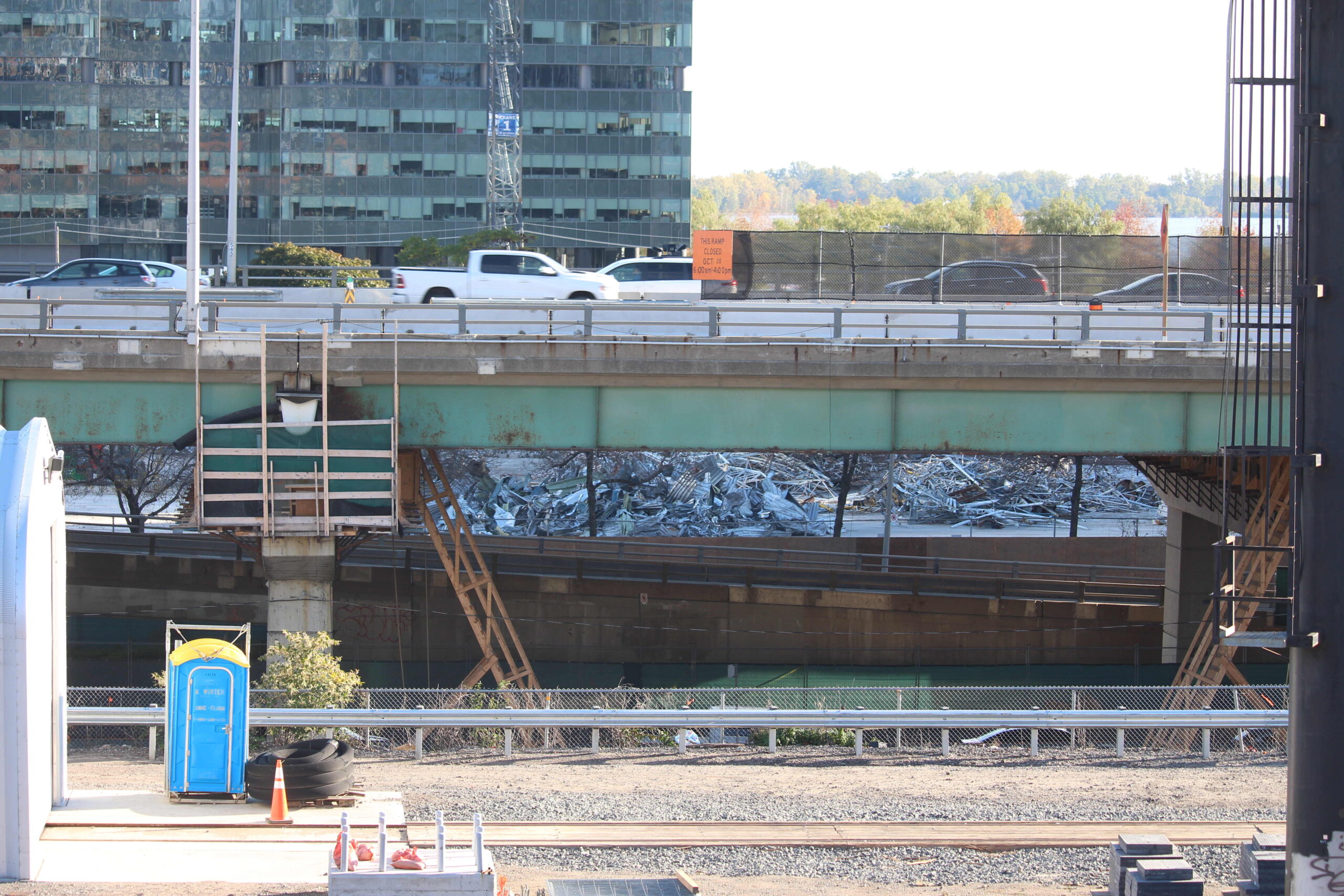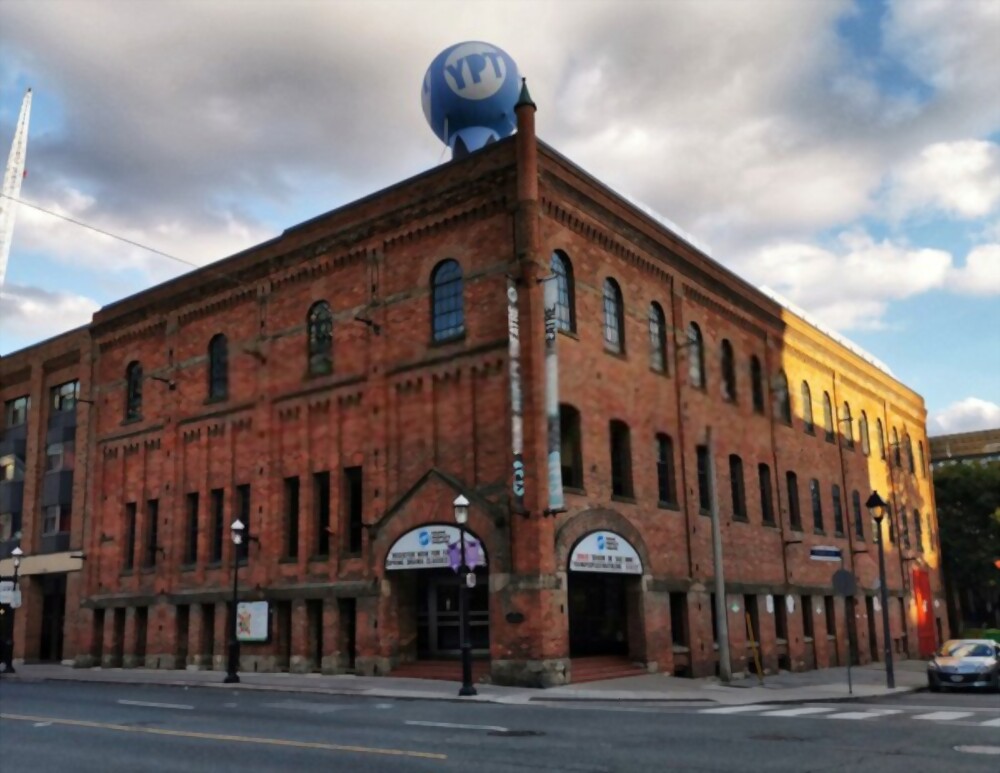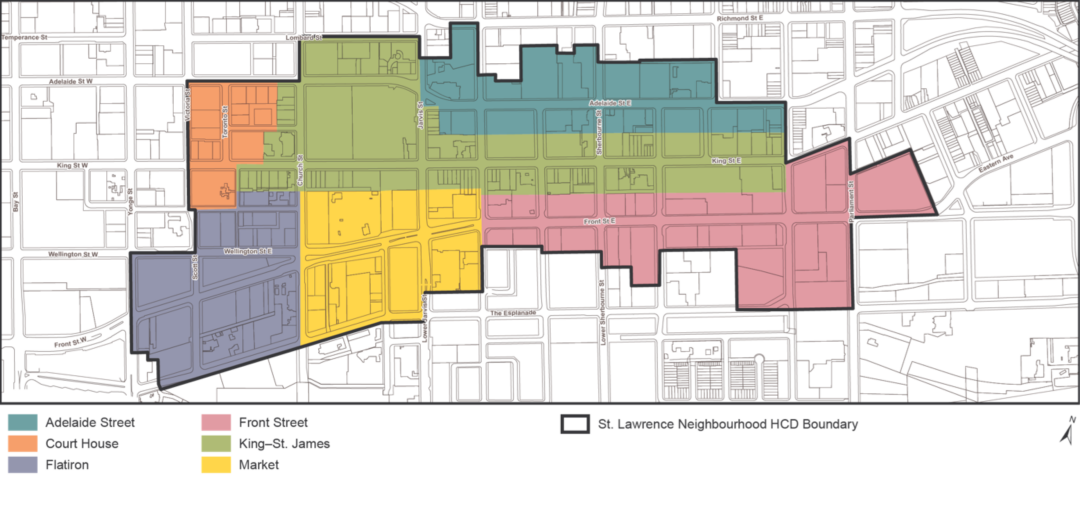By Ben Bull
Cancer patients cowering under the covers between chemo sessions. An ailing septuagenarian sleeping upright in his chair. Many children turning up late for school.
Dozens of people reported these and other shattering effects of excessive overnight noise stemming from the Gardiner Expressway rehabilitation between Jarvis and Cherry Streets at a Jan. 10 meeting.
Seething residents from the St. Lawrence Market area packed the meeting to ask that the City of Toronto’s Gardiner construction team – which is overseeing the 18-month, $248-million project that started in October 2019 and will continue for another year – put an end to the overnight noise.
They have complained for three months of sleepless nights due to extremely loud noise every Sunday through Thursday night. The complaints didn’t result in appreciable noise abatement and so they asked for a meeting.
“We need to know why you’ve been jack-hammering us out of bed at 3 a.m.,” said one meeting attendee.
Michael D’Andrea, Chief Engineer and Executive Director of the city’s Engineering and Construction Services division, Easton Gordon, Senior Manager, Gardiner Expressway Rehabilitation, and other city staff and officials listened in stunned silence as residents lined up to list their concerns.
“The buck stops with me,” D’Andrea said after the approximately 70 people in attendence made their compelling arguments for a remedy. “We need to fix this.”
At a Jan. 17 follow-up meeting, city staff said that as a result of the earlier meeting they’d set up two noise monitors in the neighbourhood with another soon to follow. In addition, “real-time [noise] monitoring is now in effect,” explained Frank Clarizio, the city’s director of Design and Construction.
“Our inspectors will shut down problem equipment immediately,” added Gordon.
City engineers expressed disappointment with the management of the project by the contractor, Aecon – particularly Aecon’s decision to use the noisiest equipment for the overnight work.
There also was an honest and open exchange of information between city officials and residents at the Jan. 10 meeting. For example, officials disclosed that the agreement with Aecon stipulates a maximum noise level of 75 decibels for overnight work, but despite this sounds have been recorded overnight at 90 decibels.
“I have condo residents calling me at 2 a.m. in tears,” as a result of this disruptive noise, a member of a neighbourhood condo board said at the meeting. “One seventy-year-old man cannot sleep in his bedroom because of the noise: he has to sleep upright in his chair.”
A member of the Market Lane Junior and Senior Public School Parent Teacher’s Association reported that the school’s principal informed her that there has been a 40% uptick in student late arrivals since the work began.
“Parents are blaming this on a lack of sleep caused by the Gardiner construction,” noted the member.
Residents wanted to know why city officials – particularly Mayor John Tory, who is the single most powerful proponent of the project – have not remedied the situation.
Ward 10 Councillor Joe Cressy said he doesn’t support the overnight work and has been lobbying Mayor John Tory’s office to alter the schedule.
However, many attendees wanted to know why Tory was not in attendance.
“This is his project,” said one irate resident. “He tells us he cares – but he’s done nothing.”
Tory had issued a media statement immediately prior to the Jan. 10 meeting saying that, due to excessive noise levels, Aecon will “cease overnight work effective tonight and through the weekend.”
Residents scoffed at the statement, which was handed out at the meeting, because Aecon doesn’t usually perform rehabilitation work on Friday or Saturday nights.
Area residents are hoping to keep the lines of communication open with the city and are pushing for the establishment of a working group.
And that’s not all they are doing.
“We are considering taking legal action,” said Suzanne Kavanagh, who is with the St. Lawrence Neighbourhood Association, at the Jan. 17 meeting. “We need to keep the pressure on.”




